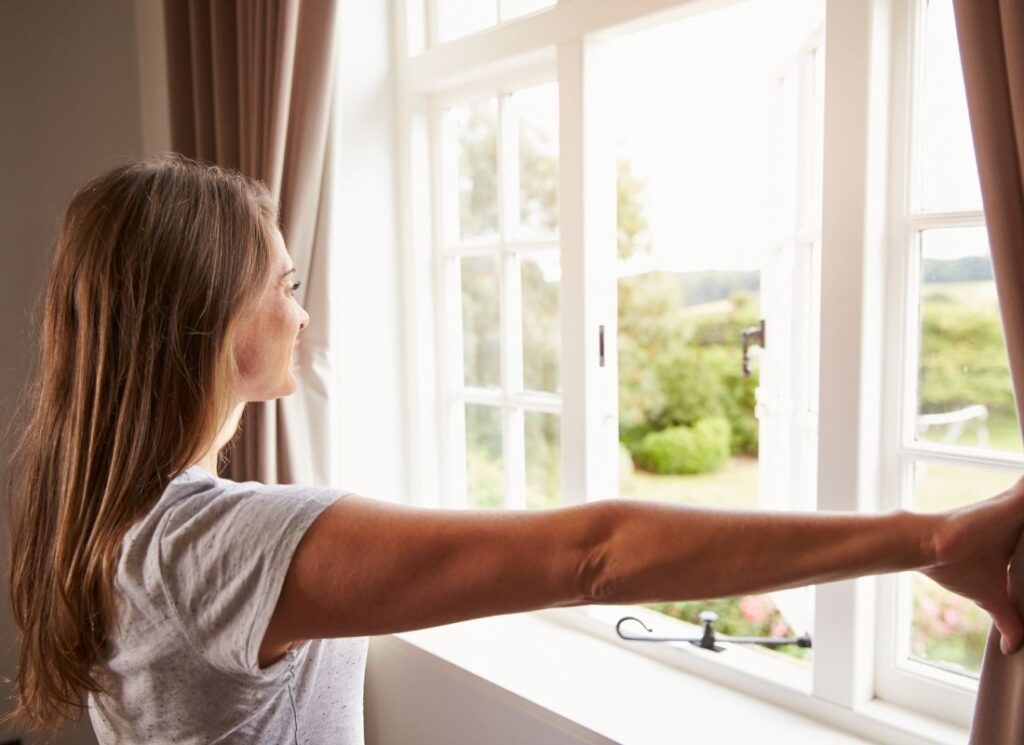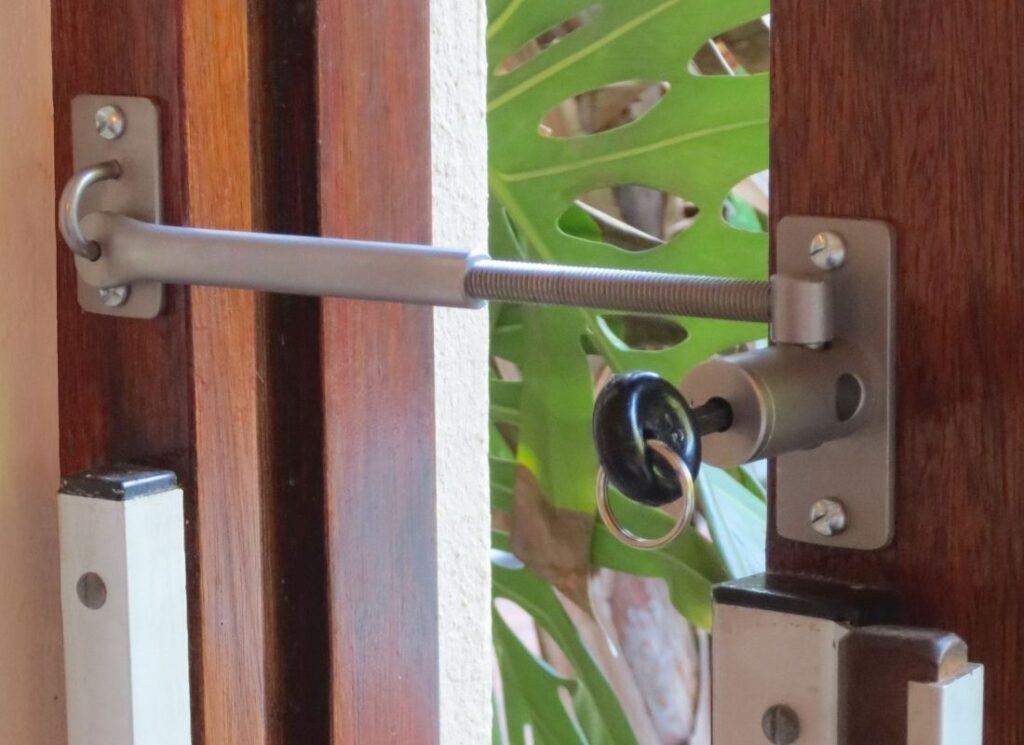Keeping your windows open is one of the simplest and easiest ways to improve the quality of life in your home and make it a better place to live for you and your family. While this may seem like a bold statement it really isn’t. Proper ventilation and clean air can have massive short and long term benefits when it comes to health and wellbeing. In this article, we explore 7 reasons why you should keep your windows open and how you can do so without compromising on safety or security.
Why you might want to keep your windows closed
There are a number of reasons why you may want to keep your windows closed. These can include bad weather, seasonal insect swarms and stopping unwanted critters from invading your home.
When it comes to keeping critters out there are a number of measures you can take. The most important thing you can do is ensure that your home is well maintained and that you stay vigilant. Ensure that your windows and doors are secure, either with netting or by installing a MiniLatch, which allows you to keep your window open, but ensures the opening is too small for rodents and other pests to enter. You also need to regularly check your air vents, attic and basement to ensure that these don’t provide easy access for critters. It is also a good idea to trim bushes away from windows and doors as critters may use these to access your home.
Insects pose a different set of problems. If you live in an area that is prone to insect swarms or have insect problems all year round you can look at installing a screen mesh at windows you want to leave open. However, if the problem is particularly bad, you can find a variety of solutions in this article.
Window security
Security is the single biggest reason why someone may choose to keep their windows closed. If you live in an unsafe area or one that is prone to break-ins or home invasions then keeping your window open poses a security risk. To offset this risk you can look at installing a window or door latch. These ingenious devices can be fitted onto any type of window or door and allow you to keep your window slightly open, but securely locked in place. Devices such as LockLatch or MiniLatch feature an adjustable C-304 stainless steel arm, which allows you to control the size of the opening ensuring that fresh air gets in, and unwanted intruders stay out.

1. Reduce indoor air pollutants
No matter how clean you keep your home, there will always be a buildup of indoor air pollutants if the windows aren’t opened or the space isn’t aired regularly. These take on a number of forms, but for all of them, the simplest solution is usually improving ventilation.
Carbon dioxide
Carbon Dioxide is released naturally into the atmosphere when you breathe. While it is relatively harmless in small quantities the problems occur when you have a buildup of carbon dioxide. This means that you won’t be getting an optimal amount of oxygen and while the effects of this may vary from a slight headache to a tired and sluggish feeling, in the long term it can have a serious effect on your health.
Mold
Mold is another substance that occurs naturally in the air in most of our homes. Mold spores are all around us, but when they land in areas where there is damp and organic matter they can form colonies, which can have deadly serious health consequences. Proper airflow and humidity control are the most effective ways to prevent these colonies forming.
Second-hand smoke
The health effects of second-hand smoke inhalation have long been the subject of study with most experts agreeing that it is harmful particularly in the case of children or pregnant women. Airflow allows the toxins created by smoking to be removed from the room.
Cooking fumes
Most cooking fumes aren’t necessarily harmful, but they can create unpleasant odours in the home and make it a less comfortable place to live. If your kitchen doesn’t have a window that can be opened, you should look into having an extractor fan installed to help remove cooking fumes from the room.
2. Increase cross ventilation
Proper ventilation isn’t as easy as just opening a window, instead, you want to create a current of air in your home. This allows toxins and stale air to be swept up in the current and fresh air to take their place. The secret to achieving this is what is known as cross-ventilation. This involves opening doors or windows on opposite sides of a room or building, so air can flow in on one side, and out the other. To achieve good cross ventilation it is important to understand some basic principles of thermodynamics. Firstly, hot air rises, this means that old stale air will generally gather in the upper areas of a room, so a low entry point flowing to a higher exit point is a good way to stimulate airflow. Secondly, air flows from cool to hot, so if you have a cool wind blowing on one side, this provides a great entry point for air while a sun-facing window will provide a better exit point.

Reduce mold growth
Cross ventilation is a great way to reduce mold growth because it reduces humidity in a room, which is one of the fundamental conditions mold colonies need to thrive. As we have mentioned mold spores are all around us so making sure they don’t settle in unventilated areas helps reduce their growth.
Reduce allergens
Molds are one example of allergens, but there are many more that can build up in a home if it isn’t properly ventilated. These include pollen during spring as well as dust mites which are tiny organisms that live in dust. Allergens are responsible for a wide variety of ailments and can cause discomfort, but proper cross ventilation ensures they are removed from the home before they build to a critical point.
3. Reduce electricity consumption
While air conditioning units and fans are a great way to artificially stimulate airflow in the home these devices can greatly increase your electricity consumption leading to extra energy costs and a higher carbon footprint. Natural ventilation can go a long way to offsetting some of these energy requirements and making your home healthier while simultaneously saving you money. Of course, if proper cross ventilation can’t be achieved, you may have to look at employing some form of artificial ventilation, but natural is usually better.
4. Fresh air
Fresh air is really what this article is all about. They say your body can survive for three weeks without food, three days without water, but only three minutes without air and this should serve to highlight how important fresh air is to your general health. While the negative effects of a lack of fresh air are usually what is noticed by individuals, there are also some immediate benefits to living in a well-ventilated home.
Increase concentration
Fresh air can lead to increased concentration levels during the day. This is because your brain is receiving more of the oxygen it needs for healthy functioning. With more people working from home during the pandemic, it is more important than ever to ensure that your living and work space has enough fresh air.
Sleep aid
When there isn’t enough oxygen in a room individuals will wake feeling sluggish and tired and often with a throbbing headache. Fresh air stimulates good sleep and studies show that people who sleep in well-ventilated rooms sleep better and wake up less during the night.
5. Reduce in-home condensation
Condensation in your home, might not sound like a big deal, but it can have long-lasting consequences. Condensation is often confused with damp, but the key difference is that where damp is caused by external moisture entering the home, condensation is caused by respiration. This buildup of moisture in your home can not only lead to the development of molds, but can also have serious long term effects as you can see below.
Home damage
Condensation can be the cause of serious damage to your property. While problems might first manifest as peeling paint or bubbling wallpaper, once the moisture seeps into the wall cavities it can cause irreversible structural damage. It is important to keep an eye out for the signs of condensation such as droplets forming on walls and windows to ensure that the problem doesn’t progress.
6. Increase natural lighting
One positive unintended consequence of leaving your windows open is that you will be letting more sunshine into your home. While the amount of sunlight might differ based on the orientation of your windows, whether or not you have awnings, or the style of curtains or blinds you use – just like fresh air, sunlight has a variety of health benefits for you and your entire family.
Energy saving
Sunlight warms the home meaning you need to spend less money keeping it at a comfortable temperature. By being less reliant on heaters you reduce your energy footprint, while also doing good for the planet.
Boost Vitamin D
Vitamin D is sometimes called the sunshine vitamin because it is actually produced by the skin when it comes into contact with sunlight. While you can get Vitamin D through supplements or certain foods exposure to the sun is the most effective and easiest way to ensure you have enough of this all-important vitamin.
Associated health benefits
Vitamin D and by association sunshine has a wide range of health benefits. Vitamin D helps boost your immune system and helps your body absorb calcium and phosphorus making it an important ingredient for healthy bones and teeth. It has also been linked to the prevention of multiple sclerosis, heart disease and even flu. Aside from these benefits Vitamin D also helps people fight depression and boosts weight loss. All of this from getting a bit of sun.
7. Generate less harmful emissions
Whether it is energy used to circulate air, cool a room, extract bad odours, or vacuum up dust and other allergens, closed windows can have a marked impact on your carbon footprint. It might not seem like it would make much difference, but if you think of the problem collectively the impact of these harmful emissions can be huge. Simply using natural ventilation to cool your home in the summer months can greatly reduce global emissions, and lessen the impact we are having on the planet. When this point is considered it is important to show common sense, there are times when a closed window can be good, such as when you are heating your home during winter.

Enjoy the benefits of keeping your windows open with added security
These are just seven great reasons to keep your windows open, and there are many more. So, if you feel like your home is stuffy and could do with a breath of fresh air, then why not install a LockLatch or MiniLatch to give you and your family an effective and affordable health boost, without compromising on security.

